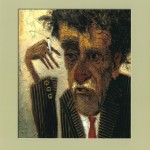Every Monday in Books Besides the Bible, Ethan Bartlett considers the value and pleasure of reading for Christians.
This may seem somewhat hypocritical considering my Hunger Games column of a few weeks ago, but today I’m going to talk partly about how not to find God in works of literature.
It seems as though every time a novel is made into a popular movie, thereby popularizing or re-popularizing the novel, we inevitably see a book with a title like Finding God in [Fill-in-the-blank]. This is not necessarily a bad thing. I have seen these sorts of books done well, and I have seen them done poorly. I don’t have any particular example of these sorts of books in mind as I write this—there is a new book titled The Gospel According to the Hunger Games, but I have not read it, so these comments should not be considered a critique of that work. It’s just that there are certain pitfalls to watch out for when evaluating a text from a Christian perspective. I have seen these in Gospel According to books, and in blog posts, and in conversations.
One of these dangers is assuming that any work of literature, even (perhaps especially) one written by a Christian, is a sermon. In a sense, writers write a novel because they have to write a novel; there is no other form of expression that would embody what they have to say. There’s a reason that Mark Twain threatened anyone attempting to find a moral in The Adventures of Huckleberry Finn with banishment. For most novelists, the meaning of the novel is the novel itself, with all the complexities and ambiguities inherent in the form. There’s a reason that Tolkien hated it when people took The Lord of the Rings as an allegory, as if each character had a one-to-one relationship to some biblical figure.
This warning is complicated by works like Lewis’s Narnia series, which were consciously written as Christian allegories. But short of the author coming out and saying, “This is a specific Christian allegory,” it is a better assumption that an author is writing a story, not a sermon. Even a work like Narnia functions, like all stories, on the level of mythology.
A related pitfall, one I touched on in my Hunger Games column, is the confusion between Christ and Christ-figure. Let’s define terms: Christ is the savior of the human race, who died and rose from the dead, thereby breaking the power of death over the human race. He is the Savior. A Christ-figure is a character in literature who takes on characteristics of Christ within the world of the story; usually a Christ-figure is someone whose actions are salvific in one way or another. It is significant to note that Christ-figures are consistently found in both literature and mythology the world over; more on this in a bit.
The confusion comes when well-meaning people assume that a Christ-figure in literature needs to be a theologically correct representation of Christ Himself. There is no reason this needs to be true. Literature is about story, and story is about identity. We tell stories to explain ourselves to ourselves, and to others. Therefore, literature is also incomplete, as people are incomplete. A story is a question, and the best stories raise more questions than they answer.
What is the upshot of all this? In his essay “Myth Become Fact,” C. S. Lewis argues that Christ was the fulfillment of all myth, of humanity’s desire for eternity: “The old myth of the Dying God, without ceasing to be myth, comes down from the heaven of legend and imagination to the earth of history.” Elsewhere he says, “To be truly Christian we must both assent to the historical fact and also receive the myth (fact though it has become) with the same imaginative embrace which we accord to all myths. The one is hardly more necessary than the other.”
To treat literature as it is (a story) rather than converting it into something it is not (a sermon or a systematic theology) is not to somehow do violence to our worldview or our theology; it is to embrace the fact that in Christ we have the fulfillment of all story. This frees us to see Christ as he is present throughout literature, rather than trying to insert him, cookie-cutter like, into every story that comes into view.










